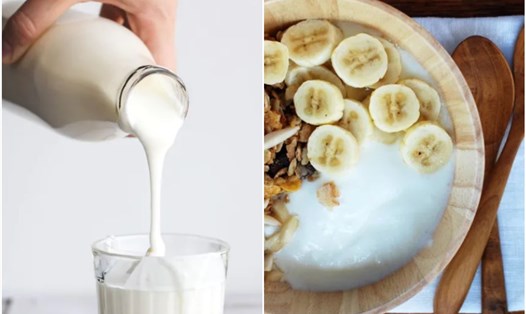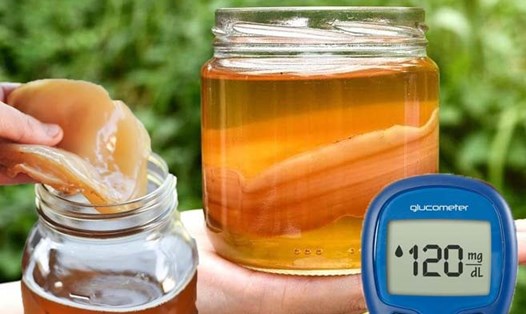Ingredients
Kefir and kombucha are both fermented drinks made using reusable original ingredients. However, the basic difference is that Kefir is usually made from milk, while Kombucha is made from tea.
Kefir seeds - the main ingredient to create Kefir, contain fermentation mixes and bacteria that bind together with milk protein and complex sugar. To ferment, these seeds are mixed with milk and left on for 18 to 24 hours. After the fermentation process, the Kefir seeds will be separated from the liquid and can be reused. That remaining liquid is Kefir.
The main ingredients for making Kombucha tea are black tea or green tea, sugar and SCOBY seedlings. Fermentation creates bacteria, acids, and a small amount of wine enzyme. The bacteria in Kombucha stand out as Lactic Acid. This is a beneficial bacteria, very good for the digestive system. In addition, Kombucha also contains a large amount of Vitamin B and enzymes.
Health benefits
The main benefits of drinking Kefir and Kombucha are the source of Probiotics - good bacteria that help balance a healthy microflora in the digestive tract.
Some studies have shown that drinking Kefir helps reduce high cholesterol and regulate the immune system. In addition, Kefir has antibacterial, anti-inflammatory, antioxidant and anti-cancer properties.
Kombucha - a source of probiotics Probiotics help keep the gut microbiome balanced, creating a stable environment to help digest food smoothly.
Kombucha made from green tea brings many health benefits such as weight loss, controlling blood sugar levels to help reduce the risk of diabetes. In addition, Kombucha also has a protective effect on the liver.
Some notes when using
While Kefir and Kombucha have many health benefits related to the intestines, they may have disadvantages we should consider.
Kefir is often made from milk containing lactose - not suitable for people with milk protein allergy or lactose intolerance.
Kefir can contain a high amount of sugar, depending on the type of milk or fruit juice used. Sugary drinks can also increase the risk of obesity, heart disease, fatty liver disease and diabetes.
The "foam" phenomenon of Kombucha is caused by carbon dioxide molecules during the fermentation process, which can cause bloating if you are not used to it.
Kombucha also contains caffeine from tea, which can disrupt sleep. People who are sensitive to caffeine will have reactions such as restlessness or anxiety.
Kombucha also contains alcohol caused by fermentation. Although this amount of alcohol is very low in commercial products (under 0.5%), it can be as high as 3% if grown at home.











